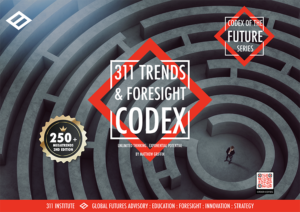WHY THIS MATTERS IN BRIEF
Blackrock knows that by Tokenising ETFs it can make its products available 247 and make them easier for international clients to buy into.
 Love the Exponential Future? Join our XPotential Community, future proof yourself with courses from XPotential University, read about exponential tech and trends, connect, watch a keynote, or browse my blog.
Love the Exponential Future? Join our XPotential Community, future proof yourself with courses from XPotential University, read about exponential tech and trends, connect, watch a keynote, or browse my blog.
BlackRock is exploring how to give one of Wall Street’s biggest investment products a digital makeover. The world’s largest asset manager is weighing ways to make exchange-traded funds available as tokens on the blockchain, according to people familiar with the matter, who declined to be identified citing confidential information. The New York-based firm is working on tokenizing funds tied to real-world assets, such as stocks, subject to regulatory considerations, the people said.
In 2024, BlackRock launched a tokenized money-market fund, known as BUIDL, which has grown to more than $2 billion and is popular on crypto platforms. It also follows the blockbuster debut of its spot Bitcoin ETF, which quickly became one of the most popular such funds in history.
The Future of Banking and Payments, by Keynote Matthew Griffin
Tokenization involves creating a digital version of a traditional asset that can move on blockchain systems. For ETFs, it could mean trading beyond Wall Street’s set hours, making US products easier to access abroad, and creating potential new uses as collateral in crypto networks.
That idea is drawing increased attention across the industry. Tokenized share classes of funds are seen as an early step toward a broader migration of markets onto blockchain, a shift proponents say could enable instant settlement, fractional shares, and more. Money-market funds from the likes of Franklin Templeton and BlackRock opened the door. Next, ETFs, already designed as flexible wrappers, may emerge as a proving ground for this transition. BlackRock has been a big booster of digital assets.
Beyond BUIDL, the firm has tested tokenized fund shares in trades on JPMorgan’s Onyx, now known as Kinexys, infrastructure and has positioned itself as an early adopter of digital-settlement models. The firm’s bullish posture is underscored by Chief Executive Officer Larry Fink, who has said every financial asset can be tokenized. He reiterated the view in his 2025 annual letter to investors.
It comes as exchanges like Kraken and Robinhood offer tokenized stocks overseas and as startups pilot similar services in controlled settings.
Such a shift faces big hurdles. ETFs today settle through Wall Street’s clearinghouses, while blockchain-traded tokens move instantly and around the clock. Reconciling those systems raises questions for regulators and custodians. Still, the climate has grown more permissive, with policymakers under the Trump era signalling openness to programs that allow firms to test blockchain-based markets in contained environments.
The market for tokenized assets is still small — about $28 billion, according to tracker rwa.xyz — compared with the multi-trillion-dollar US ETF industry. Still, BlackRock’s exploration underscores how mainstream finance is beginning to test whether the blockchain can rewire market infrastructure, from collateral flows to settlement speed.
The interest comes as Nasdaq has asked regulators to let investors trade tokenized versions of stocks on its exchange, a move that could mark the first major test of blockchain technology inside the core of US equity markets.















